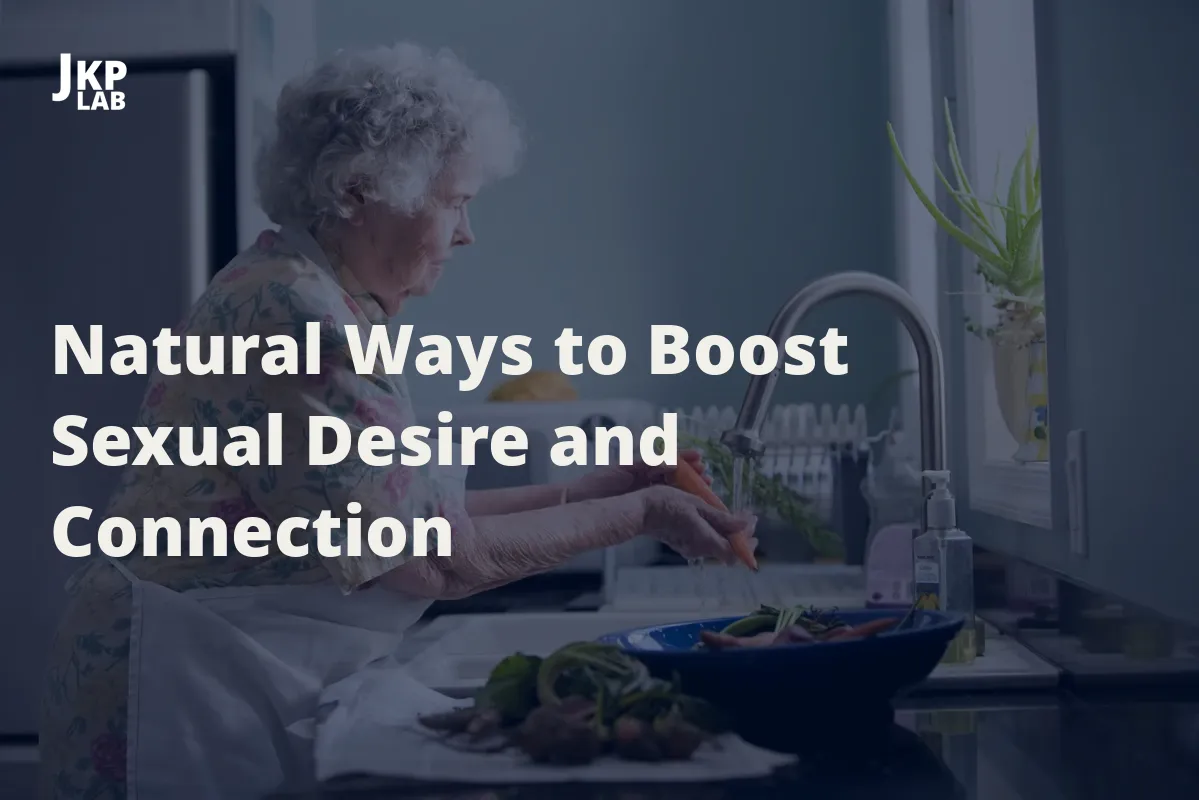
Understanding Menopause and Its Impact on Intimacy
Menopause, a natural part of aging for women, marks the end of menstrual cycles. Often occurring in the late 40s or early 50s, this transition can last for a few years. With it comes a series of changes, both physical and emotional. Hormonal fluctuations can result in symptoms like hot flashes, mood swings, and sleep disturbances. But beyond these common symptoms, one aspect that often gets overshadowed is the impact of menopause on intimacy.
Physical Changes Affecting Intimacy
During menopause, the body’s estrogen levels decline. This hormone plays a vital role in maintaining the elasticity and lubrication of vaginal tissues. Its reduction can lead to conditions like vaginal dryness and atrophy. As a result, sexual activities can become uncomfortable or even painful for some women.
Emotional and Psychological Effects
Menopause doesn’t just have physical implications. Its emotional and psychological toll can be just as challenging. Feelings of anxiety, irritability, or lowered self-esteem can emerge during this transition. For many, these emotional shifts can dampen the desire for intimate connections. This, coupled with physical discomfort, can create a gap in a couple’s intimate life.
Recognizing the Impact: It’s essential to understand that these changes, while natural, can significantly affect a woman’s sense of self and her relationship. Partners should approach the subject with empathy, seeking to understand and support each other during this time.
Bridging the Gap with Knowledge
Knowledge is power. Being informed about menopause and its potential effects on intimacy can pave the way for open communication between partners. By addressing concerns and exploring potential solutions together, couples can nurture their bond and sustain their intimate connection. For those interested in a deeper understanding, a comprehensive guide on menopause can be an invaluable resource. Check out this detailed article: All You Need to Know About Menopause for more insights.
Finding Solutions
While menopause is a natural phase, that doesn’t mean women and their partners have to accept a diminished intimate life. Many solutions, from lubricants to counseling, can help address the physical and emotional challenges of menopause. It’s about finding what works best for each individual and taking proactive steps to maintain intimacy during and after the menopausal transition.

Chronic Illness: Another Layer to Relationship Struggles
Chronic illnesses, long-term health conditions that may not have a cure, can introduce an array of challenges into a person’s life. Beyond the physical discomfort and regular medical care, these conditions can place a strain on personal relationships, especially when it comes to intimacy.
The Daily Realities of Chronic Illness
People with chronic illnesses often grapple with fatigue, pain, or other persistent symptoms. These physical challenges can make intimacy seem like a distant dream, as energy levels might not always align with a partner’s desires or expectations.
Emotional Impact on Intimacy
Beyond the physical realm, chronic illnesses can also foster feelings of isolation, anxiety, or even guilt. A person might feel like they’re a burden to their partner, or they might worry about their partner’s perceptions of them as they navigate their health challenges. These emotional roadblocks can further distance individuals from the realm of physical intimacy.
Communication is Key
For relationships affected by chronic illness, open dialogue becomes even more crucial. By discussing fears, expectations, and desires, couples can work together to find a middle ground. They can set realistic expectations and seek ways to stay connected, both emotionally and physically.
Exploring Alternative Forms of Intimacy
Intimacy isn’t just about physical connection. There are various ways couples can feel close, even when physical intimacy might be challenging. Simple gestures like holding hands, sharing moments of laughter, or even just spending quality time together can bridge the gap. Finding activities that both partners enjoy, even if they’re less strenuous, can help foster feelings of closeness.
Tips for Navigating Intimacy with Chronic Illness:
- Educate Oneself and Partner: Understanding the nuances of the specific chronic illness can make both partners feel more equipped to handle challenges.
- Seek Professional Guidance: Therapists or counselors who specialize in chronic illnesses can offer strategies and coping mechanisms.
- Focus on Emotional Bonding: While physical intimacy is essential, building a strong emotional bond can also provide a deep sense of connection and satisfaction.
Chronic illness might introduce challenges, but with understanding, patience, and effort, couples can navigate these waters and maintain a fulfilling intimate relationship.

The Interplay Between Emotional and Physical Intimacy
Intimacy, often associated with romantic relationships, can be a complex tapestry of both emotional and physical connections. While many focus on the physical aspect, emotional intimacy forms the foundation of any strong relationship. It’s vital to understand how these two facets intertwine and enhance one another.
What is Emotional Intimacy?
At its core, emotional intimacy revolves around the deep bond and connection shared between individuals. It’s the feeling of being understood, valued, and cared for by another. This bond is nurtured through open communication, trust, and shared experiences.
Emotional Intimacy’s Role in Physical Connection
A robust emotional bond often paves the way for a fulfilling physical relationship. When individuals feel connected on an emotional level, they tend to be more open, understanding, and receptive in their physical interactions. The trust built through emotional intimacy allows for vulnerability, which is a cornerstone of genuine physical connection.
Barriers to Emotional Intimacy
Just as various factors can hinder physical intimacy, emotional closeness too faces challenges. Past traumas, fear of vulnerability, or communication breakdowns can all create walls between partners. Without addressing these barriers, physical intimacy might feel lacking or disconnected.
Fostering Emotional Intimacy
Building and maintaining emotional intimacy requires effort and dedication. Here are some steps couples can take:
Establish Open Communication
Open dialogue allows partners to share their feelings, desires, and concerns. This sharing fosters understanding and builds trust.
Spend Quality Time Together
Engaging in shared activities, even simple ones like taking a walk or cooking together, can create shared memories and strengthen emotional bonds.
Prioritize Emotional Needs
Understanding and respecting each partner’s emotional needs can ensure that both individuals feel valued and cared for in the relationship.
A Balanced Equation
A balanced relationship involves both emotional and physical intimacy. While they can exist independently, their true potential is realized when they complement each other. Prioritizing emotional connection can enrich the physical bond, creating a fulfilling and harmonious relationship.

Natural Ways to Boost Sexual Desire and Connection
In the journey of life, various factors, such as stress, hormonal changes, or medical conditions, can dampen one’s sexual desire. While there are several methods to address this, many individuals and couples lean towards natural ways to rekindle their passion and strengthen their intimate connection.
The Role of Diet and Nutrition
What one eats can play a significant role in overall well-being, including sexual health. Foods rich in vitamins and minerals, especially those that promote blood flow and hormone regulation, can naturally boost libido. Some of these foods include:
- Dark Chocolate: Known to release endorphins and increase blood flow.
- Nuts and Seeds: Rich in essential fatty acids which can boost hormone production.
- Leafy Greens: High in magnesium, they help decrease inflammation in blood vessels, increasing blood flow.
The Power of Herbs
Various herbs have been celebrated through history for their potential to enhance sexual desire. Some popular choices are:
- Ginseng: Often touted for its ability to combat fatigue and improve stamina.
- Maca Root: Believed to boost libido and energy levels.
- Tribulus: Thought to improve desire in both men and women.
The Magic of Exercise
Physical activity can naturally increase blood flow, reduce stress, and enhance mood – all of which contribute to a heightened sexual desire. Activities like yoga, which focus on breathing and mindfulness, can also strengthen the connection between mind and body, paving the way for a more intimate connection with one’s partner.
Mindfulness and Meditation
By bringing attention to the present moment, mindfulness and meditation can help individuals connect deeply with their sensations, emotions, and desires. This deeper understanding can translate into a more profound intimate connection with a partner.
Exploring the Natural World of Supplements
For those looking for an extra boost, natural dietary supplements, such as Spanish Fly Pro, offer a blend of ingredients designed to enhance arousal, desire, and overall sexual experience. These supplements can serve as an additional tool in the quest for a fulfilling intimate life.
A holistic approach, combining diet, physical activity, mental wellness, and natural supplements, can offer individuals and couples a pathway to a vibrant and passionate intimate connection.

How Spanish Fly Pro Elevates Your Intimate Moments
In the vast landscape of dietary supplements promising to enhance intimacy, Spanish Fly Pro emerges as a popular choice for many. With its natural ingredients and beneficial properties, it aims to heighten sexual experiences for both men and women. But what exactly is it, and how does it help?
A Glimpse into Spanish Fly Pro
Spanish Fly Pro is a modern and improved version of the age-old aphrodisiac concept of Spanish fly. Unlike its historical counterpart, which was derived from a beetle and had potential side effects, Spanish Fly Pro is safe, made from natural ingredients, and designed to improve sexual arousal and performance.
The Science Behind It
The formulation of Spanish Fly Pro incorporates herbs and nutrients known for their libido-boosting properties. When consumed, these ingredients can enhance blood flow, increase arousal, and heighten sensitivity, making intimate moments more pleasurable.
For Both Men and Women
One of the unique aspects of Spanish Fly Pro is its versatility. Regardless of gender, individuals can benefit from its properties. Whether it’s increased libido, better stamina, or heightened sensitivity, this supplement seeks to cater to a wide array of intimate needs.
Ease of Use
Spanish Fly Pro is designed for convenience. It’s typically available in liquid form, allowing users to mix it with a beverage of their choice. This easy incorporation means spontaneous moments don’t need to be interrupted for long preparations.
Safety First
When considering any supplement, safety remains paramount. Spanish Fly Pro is crafted from natural ingredients, reducing the likelihood of side effects. However, as with any supplement, it’s essential to use it as directed and ensure there are no individual allergies to its ingredients.
In the realm of intimacy-enhancing products, Spanish Fly Pro stands out. By combining tradition with modern science, it offers a safe and effective avenue for those looking to add a spark to their intimate moments.

The Link Between Menopause and Intimate Challenges
Menopause, a natural phase in every woman’s life, is often accompanied by various symptoms. Among these, some can particularly influence intimacy and sexual health. Understanding the challenges presented by menopause can guide individuals and couples to better navigate this transition.
The Science of Menopause
Menopause marks the end of a woman’s reproductive years. It is characterized by a decline in the production of hormones like estrogen and progesterone. This hormonal shift can bring about multiple changes in a woman’s body.
Symptoms Impacting Intimacy
Several symptoms associated with menopause can directly affect intimacy:
- Vaginal Dryness: Reduced estrogen levels can lead to decreased moisture in the vaginal area, potentially causing discomfort during intercourse.
- Decreased Libido: Hormonal changes can lead to a reduced interest in sexual activities.
- Mood Fluctuations: Menopause can lead to mood swings or feelings of sadness, which might affect one’s desire or motivation for intimacy.
Navigating the Changes
While these symptoms can be challenging, they are manageable. Here are some strategies:
Embrace Lubrication
Lubricants can alleviate vaginal dryness, making intimate moments more comfortable and enjoyable.
Hormone Replacement Therapy (HRT)
For some women, HRT can help balance hormone levels and alleviate some symptoms. However, it’s essential to consult a healthcare professional to understand the benefits and risks.
Stay Informed
A deeper understanding of menopause and its effects can lead to better coping strategies. For a comprehensive guide on menopause, individuals can refer to resources that detail the process and its implications.
Through understanding and proactive measures, the challenges posed by menopause to intimacy can be managed. With communication, patience, and the right tools, couples can continue to share fulfilling intimate moments.

Strengthening Intimacy Amidst Chronic Illness
Living with a chronic illness can pose a myriad of challenges, not least of which is its potential impact on intimacy. Whether the ailment is physical or mental, it can create barriers that make closeness more difficult. However, with understanding, adaptability, and a dash of creativity, individuals and couples can rekindle and strengthen their intimate bonds.
Understanding the Impact
Chronic illnesses, whether they are conditions like diabetes, arthritis, depression, or others, can influence a person’s capacity or desire for intimacy. Fatigue, pain, mood disturbances, or medication side effects are just a few ways these illnesses can interfere.
Communication is Key
Open dialogue is vital. Partners need to communicate their feelings, limitations, desires, and fears. By understanding each other’s boundaries and needs, they can explore ways to maintain and even deepen their intimate connection.
Set Realistic Expectations
While spontaneity is lovely, sometimes, with chronic illness, planning becomes essential. Setting aside dedicated time for intimacy, when energy levels are optimal, can make a significant difference.
Focus on Emotional Intimacy
Physical intimacy is just one facet of a relationship. Emotional closeness, sharing, understanding, and companionship are equally significant. There will be times when physical intimacy might be challenging; in these moments, fostering emotional bonds can provide warmth and connection.
Adapt and Explore
Chronic illness might mean redefining what intimacy looks like. This could involve finding new ways to be physically close or exploring aids, such as the use of Spanish Fly Pro, to enhance the experience. With an open mind, couples can discover novel methods to express their affection and desire.
Life with chronic illness demands adaptability. While it can change the landscape of intimacy, it doesn’t mean the end of it. By approaching challenges with understanding, patience, and creativity, individuals can continue to share profound, intimate moments, nurturing the bond that binds them together.
End.